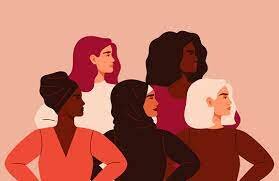Global health leaders and stakeholders gathered in Berlin last...
9 March 2023
This article was originally published in the British Medical Journal on March 9th, 2023

Authors: Helen Clark, Phumzile Mlambo-Ngcuka, María Fernanda Espinosa Garcés, Gabriela Cuevas Barron
Gender equality is off track—according to a recent report by the United Nations, 300 years off track.1
In a world of multiple crises, we find it surprising that gender equality is not a priority for most political leaders. Mounting evidence shows that the health and resilience of our communities and economies depends on women being at the decision making table.
The covid-19 pandemic also exacerbated gender inequality. It revealed immense vulnerabilities which can’t be addressed unless governments acknowledge, invest in, and strengthen structures that support women and girls. It is a fair assumption that these acknowledgments, investments, and strengthening won’t happen until we have more women in leadership roles.
During the pandemic, women across all sectors left the workforce as they were impacted by traditional gender roles, caretaking responsibilities, gender-discriminatory pay structures, unsafe work conditions and lack of social protection. For girls, school closures and other pressures exacerbated risks such as mental health challenges, violence, child marriage, pregnancy, female genital mutilation, and HIV infection. Millions of women and girls were left without access to sexual and reproductive health services.11.2 million girls and young women were left at risk of not returning to education.2
Job departures were particularly noticeable in the health workforce. Over 70 per cent of it is made up of women, many of whom are underpaid, unpaid, overworked, and/or in precarious jobs.
The many pressures created by conflicts and climate change are increasing poverty and gender inequality further, including through rising energy and living costs and inflation.3 Increased out-of-pocket payments for essential services also require many families to choose between accessing essential health services and clean water and food. In some countries, the most basic human rights of women and girls are being revoked, such as the right to education.
As leaders of networks and multi-stakeholder partnerships that work to make gender equality and health for all a reality, we call on Heads of State and Governments to prioritize and resource this agenda every time they meet. They have plenty of opportunities to do that this year, including at the G7 and G20, at the Bretton Woods meetings, at regional leadership dialogues, and with all member states of the United Nations including during the Sustainable Development Goal (SDG) Summit and the High-Level Meetings on health at this year’s UN General Assembly.
To kick start the change, we offer a four-point plan:
First, ensure that more women are in public and private sector leadership and decision-making roles and commit to gender parity by 2030. Women should be represented at all levels, from President to CEO to Director, on Boards and in managerial positions and as Ministers of important portfolios such as finance and foreign affairs. They must also be supported to stay in these demanding roles.
Second, ensure financial protection to minimize out-of-pocket health care payments so that all people can access the services they need. Advance progress on universal health coverage, so that everyone, everywhere can access quality health services, including comprehensive sexual and reproductive health services, without the risk of financial hardship.
Third, with women making up most of the health and care workforce, ensure gender equity in leadership, address underpaid and unpaid work with adequate remuneration, close the gender pay gap, and invest in safe and decent work. Deliver training opportunities and violence and discrimination free environments for all health workers. This is beneficial for the quality of care, and the resilience of health systems, making us all less vulnerable to emergencies.
Fourth, we need to collect and analyse sex- and gender-disaggregated data, and practice gender-based budgeting, to ensure gender-responsive and gender-transformative policies that leave no one behind.
We need world leaders to focus on women and girls on International Women’s Day and on the other 364 days of the year. Everyone will benefit.
Please find the original BMJ publication here: https://www.bmj.com/content/380/bmj.p567
References
- Without investment, gender equality will take nearly 300 years: UN report https://news.un.org/en/story/2022/09/1126171
- Barron GC, Laryea-Adjei G, Vike-Freiberga V, et al., Lancet Commission on COVID-19: Task Force on Humanitarian Relief, Social Protection and Vulnerable Groups. Safeguarding people living in vulnerable conditions in the COVID-19 era through universal health coverage and social protection. Lancet Public Health 2022;7:e86-92. doi:10.1016/S2468-2667(21)00235 8. pmid:34906331
- International Monetary Fund. World Economic Outlook. https://www.imf.org/en/Publications/WEO
Categoría: Related Initiatives
